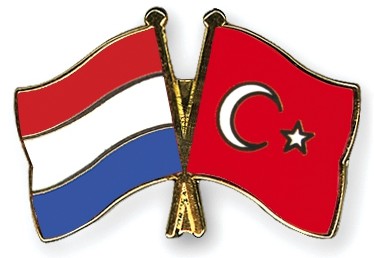Coalition claims European court backs integration exams for Turkish citizens

 Coalition parties CDA and D66 have stepped up efforts to introduce compulsory citizenship tests for Turkish immigrants after studying a European court judgment.
Coalition parties CDA and D66 have stepped up efforts to introduce compulsory citizenship tests for Turkish immigrants after studying a European court judgment.
The government wants to tighten up the rules from 2020 so that all non-EU nationals will be required to show they can speak Dutch and understand the foundations of Dutch society.
The EU’s association treaty with Turkey, signed in 1963, contains a so-called ‘stand still’ clause that prevents member states attaching conditions to freedom of movement, including citizenship tests.
However, the Christian Democrats and progressive-liberal D66 party claim that a judgment by the European Court of Justice allows for restrictions where there is a ‘overriding reason in the public interest.’
In the case in 2014, Naime Dogan, a Turkish woman looking to join her husband in Germany, challenged the requirement for her to have a basic knowledge of the German language before she could live in the country.
The court found that the rule breached the ‘standstill clause’ and interfered with Mr Dogan’s right to family reunification. It said that a lack of language proficiency on its own was not a valid reason to deny his wife a visa by itself, without taking into consideration the wider circumstances.
Although Germany lost the case, the judgment states that ‘the introduction of a new restriction may be allowed in so far as it is justified by an overriding reason in the public interest, is suitable to achieve the legitimate objective pursued and does not go beyond what is necessary in order to attain it.’
D66 MP Jan Paternotte argued that the proposed new Dutch integration law, which takes account of individual circumstances, was compatible with the court’s judgment. ‘In contrast to Germany, the Netherlands will work with personal integration plans and quality of life tests which will determine what level of language is required of new citizens for them to pass the citizenship test,’ he told AD.nl.
The number of Turkish nationals arriving in the Netherlands has increased in the three years since president Recep Tayyip Erdogan launched a crackdown on opposition activists in the wake of an alleged coup.
More than 77,000 people have been arrested and 150,000 government officials sacked or sanctioned since July 2016. Last year 1,300 Turks claimed asylum in the Netherlands, compared to 55 in 2015. The number arriving via other migration routes such as family reunion increased by around 30% in 2017, according to statistics agency CBS.
Thank you for donating to DutchNews.nl.
We could not provide the Dutch News service, and keep it free of charge, without the generous support of our readers. Your donations allow us to report on issues you tell us matter, and provide you with a summary of the most important Dutch news each day.
Make a donation